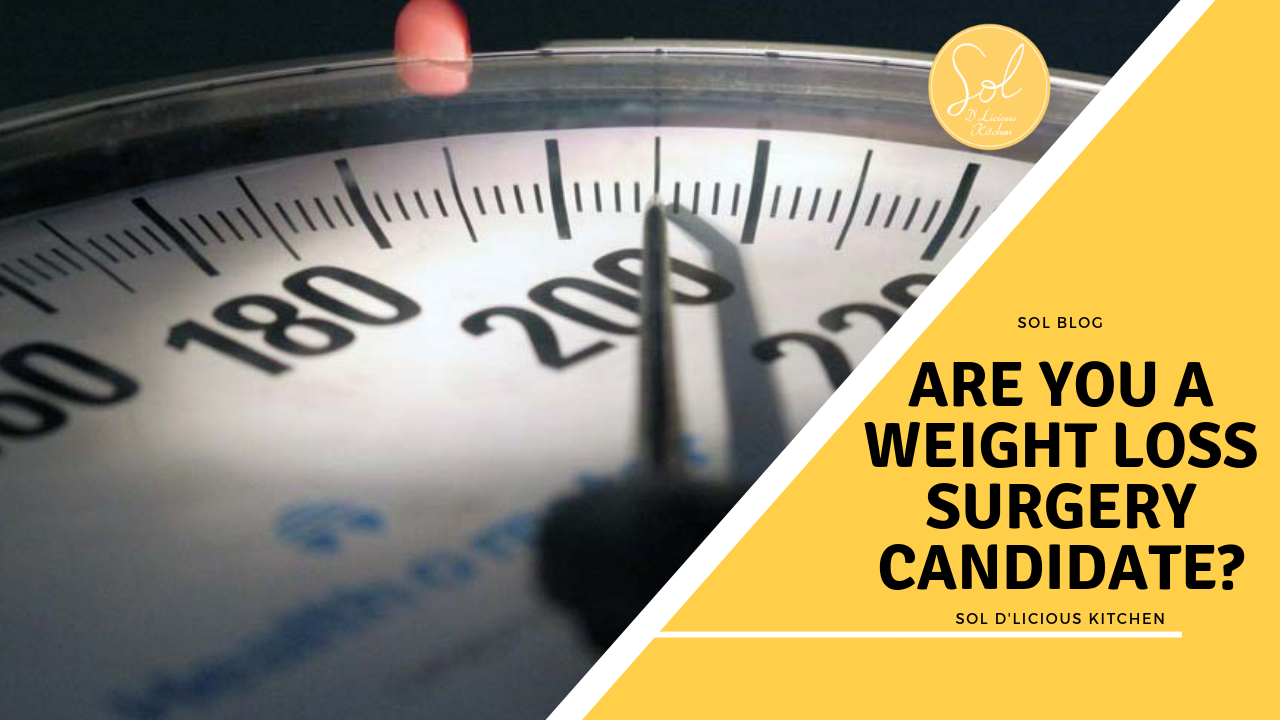
When approaching a new weight loss routine, it can be difficult to get started. Some of us are more blessed than others are when it comes to easily shedding pounds.
It may be a case of having tried and tried again, only to find that you are getting nowhere, leading to understandable discouragement. This has led you to ask the question whether you would be a good candidate for weight loss surgery.
First, let’s look at the different types of weight loss surgery.
Gastric Bypass- this is by far the most common weight loss surgery; your doctor may also refer to it as RYGB. The basic idea is that the surgeon leaves you with just a small pouch of the stomach that cannot hold much food, meaning that you will eat less. Therefore, the food that you eat bypasses the rest of your stomach, instead of going from the pouch straight to the small intestine. It requires just several slight incisions and then a camera to monitor the progress inside.
Adjustable Gastric Band- the band is fitted around the top of your stomach, and it has a small balloon inside of it that will control how tight, or lose, it is. That band will limit how much food can go into your stomach.
Gastric Sleeve- after removing the majority of the stomach, the surgeon leaves a narrow section called a gastric sleeve, which is the upper area. It is indeed to curb the hunger hormone.
Duodenal Switch- perhaps the most complicated of the weight loss surgeries, it uses a gastric sleeve to bypass the small intestine and limits how much you can eat. The drawback, however, is that your body does not have the opportunity to absorb the nutrients from what food you are eating. This could lead to vitamin deficiencies.
Electrical Implant- much like a pacemaker, it works by delivering electrical pulses to the vagus nerve, which is between the brain and the stomach. The vague nerve lets the brain know when the stomach is full.
As with any weight loss surgery, the only way for it to be truly effective is by eating a healthy and balanced diet.
Benefits
Generally, weight loss occurs for up to 24 months after weight loss surgery. At that point, there are people that will regain some weight, but that will certainly not be the case for all.
Medical conditions related to obesity, such as type 2 diabetes and high blood pressure; often improve as people begin to lose substantial amounts of weight.
For those who have struggled with their weight their entire lives, have tried every diet possible and have lost weight only to regain what was lost and more over and over again find bariatric surgery to be an effective method of reaching a healthy weight and keeping it off.
Risks
As with any surgery, there are risks involved during the actual procedure itself. Following surgery, complications can also occur, including but not limited to:
Vomiting, nausea, bloating, increased gas, diarrhea, dizziness, and excessive sweating when eating too much.
Your doctor can explain in detail all the risks involved.
Requirements Before Surgery Is Approved
Not everybody is eligible for weight loss surgery; however, there are some qualifying requirements from the American Society for Metabolic & Bariatric Surgery:
- An obese adult (a BMI over 40, or between 35 and 39
- An obesity-related condition, such as type 2 diabetes
- Before Surgery Is Performed These Parameters Must Be Documented
- You know and understand, the risks and benefits of weight loss surgery
- You are prepared to adjust your diet once you have had the surgery
- You are fully committed to adjusting your lifestyle to keep the weight off
- Most HMO insurance plans require at least 6 months of nutritional counseling with a dietician or a nutritionist.
- Many times if you are a smoker, you will be required to quit.
While teens are not typically accepted for weight loss surgery, if there is an extreme obesity problem (i.e. a body mass index of 35 or greater, which as an example would be a height of 5’6” and 220 pounds) in addition to a weight-related condition then it is possible for them to qualify for surgery, though all insurance carriers are different.
Technically, there is no guarantee that you will be approved even if you fulfill all the requirements above, as all insurance carrier is different.
If you are interested in weight loss surgery and feel that you meet these requirements, you should speak to your doctor about how to take the next steps.

JMtZaiORFgUpKlH
WnGBYcaiFHr
rZAzMsPceIJbB
yfuvnJKHQIYMsiZ
cialis dosage 20mg Laxorera https://apcialisz.com/ – Cialis acoume Zithromax For Treatment Of Chlamydia wegeDyepsy Cialis Angela Generique Cialis Generique